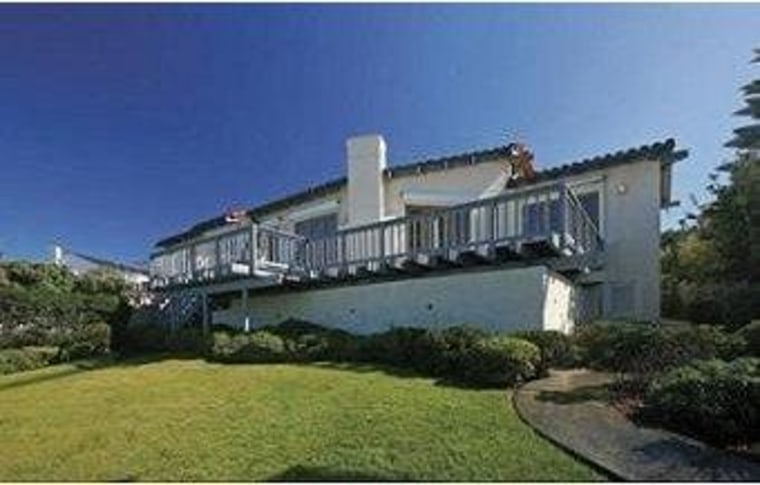Mitt Romney has repeatedly emphasized a call for "sacrifice," as part of his vision for European-style austerity in the U.S. starting in 2013. Of course, the talk would be more compelling if it weren't for that pesky mansion and its elevator for the Romney family cars.
At Mitt Romney's proposed California beach house, the cars will have their own separate elevator.There's also a planned outdoor shower and a 3,600-square foot basement -- a room with more floor space than the existing home's entire living quarters.Those are just some of the amenities planned for the massive renovation of the Romneys' home in the tony La Jolla neighborhood of San Diego, according to plans on file with the city.
As if this story couldn't get any worse, it turns out Romney's house also has its own lobbyist, who will help push the proposed design plan through the local approval process.
Not bad for a guy who jokes about being "unemployed."
Jamison Foser joked, "What's the big deal about Romney wanting an elevator for his cars? They can't use the stairs, can they?" David Waldman added, "Sometimes I like to spice things up by hitting 'shuffle' on my car elevator, and driving whichever one comes up."
At a certain level, I can appreciate why this seems irrelevant to the campaign. After all, following a successful career as a vulture capitalist, Romney enjoys enormous personal wealth, and it stands to reason he would spend some of his millions on lavish accommodations.
But I'm inclined to take note of stories like these in large part because of Romney's policy agenda.
The former governor's platform calls for "sacrifice," but only for those at the bottom -- the very wealthy (those who can afford elevators for their cars and lobbyists for their houses) would get a massive tax break from a President Romney, while those struggling most would get a tax increase, in addition to cuts to programs the less fortunate rely heavily on, including deep cuts in education and health care.
It's against this backdrop that Romney boasts about his wife driving "a couple of Cadillacs," says he's "not concerned about the very poor," and says making over $374,000 in speaking fees in a year is "not very much" money. All of those examples followed Romney suggesting elected office is only for the rich, clumsily talking about his fondness for being able to fire people, demanding that talk of economic justice be limited to "quiet rooms," accusing those who care about income inequality of "envy," daring Rick Perry to accept a $10,000 bet, and suggesting that Americans should somehow feel sorry for poor banks.
This is also relevant as it relates to homes, in particular. Romney has inexplicably adopted a pro-foreclosure agenda. Given the larger context, this isn't at all helpful -- at last count, Romney has three homes: there's the $12 million oceanfront residence in California (the one Romney is quadrupling in size); a $10 million home in New Hampshire; and a townhouse in Belmont, Mass. There's also the nearby mansion, where one of Romney's sons lives, and where Romney was registered to vote as recently as last year, but it's technically not one of the candidate's houses.
There was also the $5 million ski-house in an exclusive area in Utah, but he sold it in 2010.
While Romney's spending habits are his business, it's hardly unreasonable to think voters may take note of these details. Very wealthy candidates are perfectly capable of doing well in national elections, even in tough economic times, but their success depends on voters' ability to perceive these candidates as champions for those who work for a living. With Romney, that appears to be impossible.
